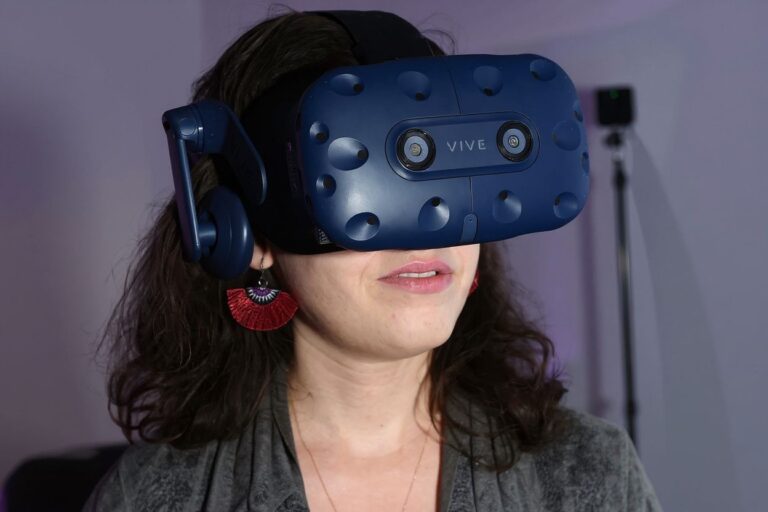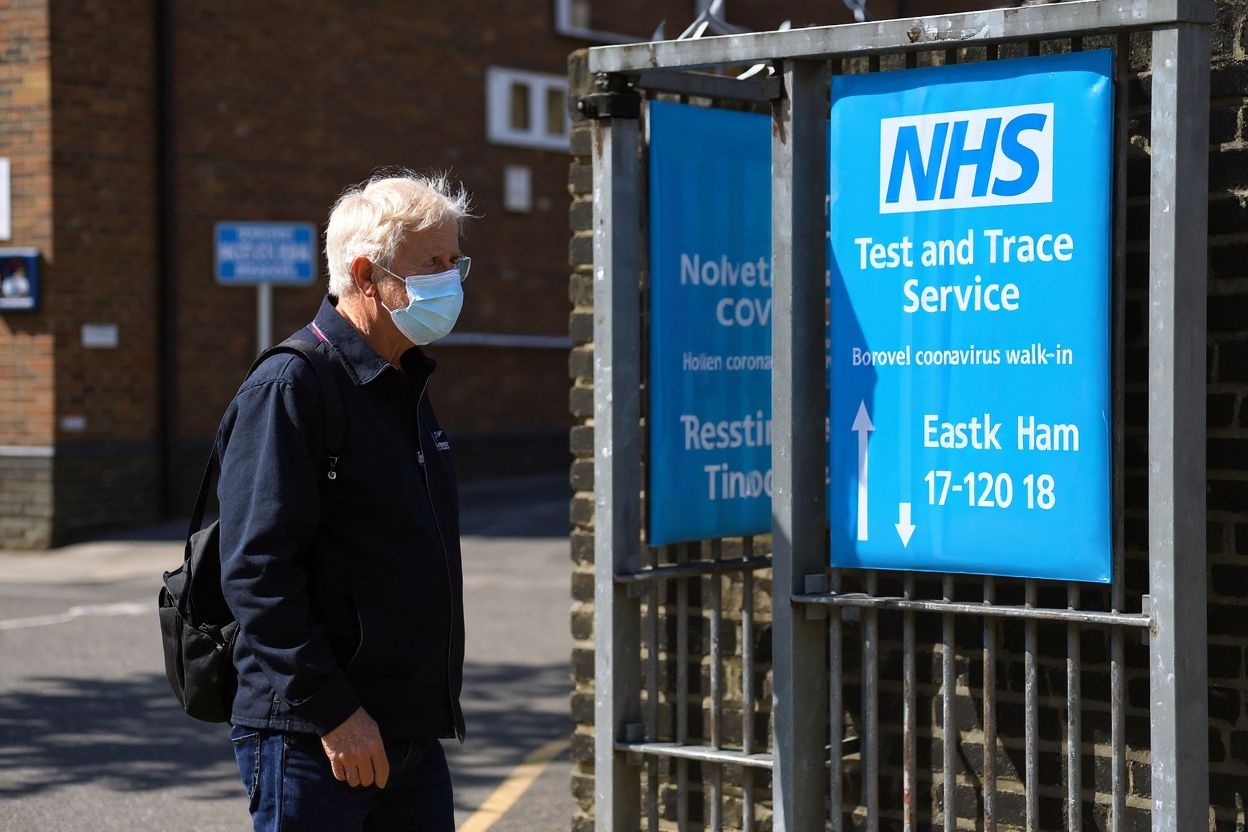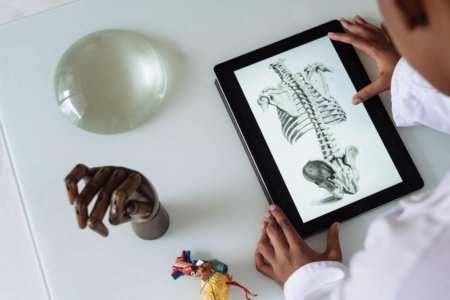
The rural county of Somerset in southwest England is best known for its cider, and seems an unlikely setting for cutting-edge virtual reality technology. But, owing to teaching disruption caused by the coronavirus pandemic, medical students at Musgrove Park Hospital in the main town of Taunton are tapping into virtual reality technology to help them in their studies.
Clutching hand-held controllers and immersed in large headsets, the students are plunged into a maelstrom of virtual intensive care wards. The technology lets them learn how to explain diagnoses and treatment plans, deal with challenging situations, as well as engage with patients and their families, without attending in-person sessions.
The brains behind the initiative is British start-up Virti, whose VR technology helped Britain’s state-funded National Health Service (NHS) come through the height of the pandemic. “Normally it’s very challenging for people to see this in practice because there are only about three or four people in the operating theatre,” Virti chief executive Alex Young told AFP. “But with this type of technology, you can immerse 15 to 20 people in one of these environments and really scale how people learn and train,” he said.
 A worker wearing a face mask or covering due to the COVID-19 pandemic, stands near a sign for Britain's NHS (National Health Service) Test and Trace service. Britist start-up Virti is supplying virtual reality technology for NHS trainee medics to safely learn their skills remotely during the pandemic.
A worker wearing a face mask or covering due to the COVID-19 pandemic, stands near a sign for Britain's NHS (National Health Service) Test and Trace service. Britist start-up Virti is supplying virtual reality technology for NHS trainee medics to safely learn their skills remotely during the pandemic.
Virtual reality technology: ‘Reproducible’ and ‘reliable’
The VR experience gets a seal of approval from both trainees and more experienced medics. Richard Bamford, surgeon and lead for skills and courses at the hospital, said: “It’s reproducible, it’s reliable, and it’s based on a real-world setting. It’s as realistic as it can be. “It gives them (the students) a good opportunity to train, particularly in times when training has been affected by different reasons, Covid being one of them.”
Medical student Chiranth Badrinath explained that Virti’s technology gave him an insight into an operating theatre environment that would have otherwise been impossible. “If we had this last year it would be so good for our learning,” he said. “I’ve been in theatre and felt like I couldn’t really ask questions, but having everything explained to you, there’s a running commentary — it’s really helpful.”
Doctor Usama Khan appreciated the close-up virtual views. “It’s kind of freaky but it’s good,” he said. Virti aims to introduce affordable “experiential education” across the world, and is already working with hospitals in Africa.
It has launched computer-generated avatars that respond to humans like Amazon’s Alexa technology, allowing trainee medics to practise “soft” interpersonal skills. “In healthcare, that’s really interesting, looking at how people can practise in a safe environment, and their communication skills with patients, either breaking bad news, explaining diagnoses,” said Young.










